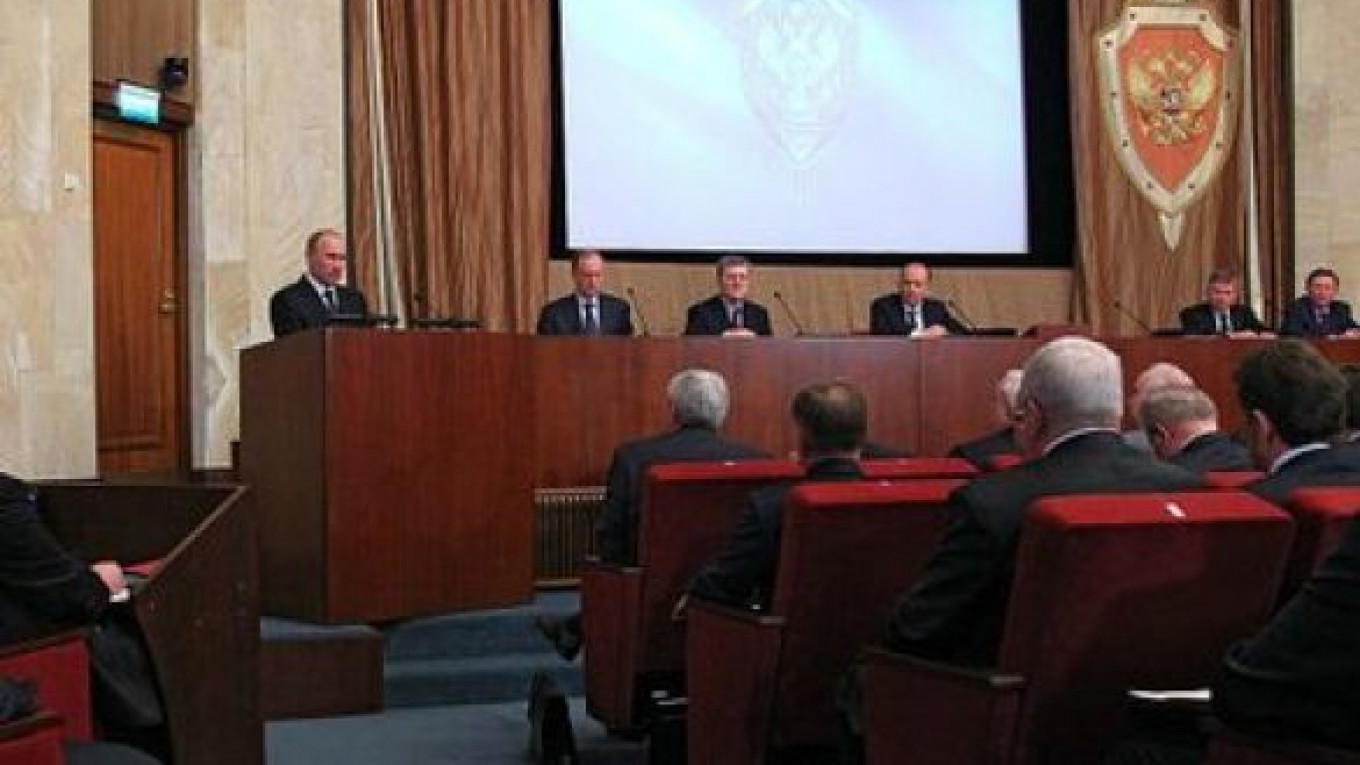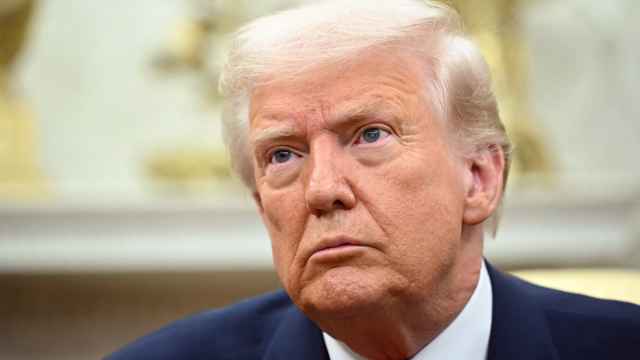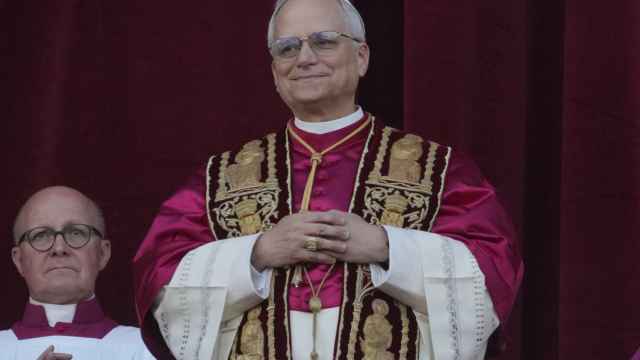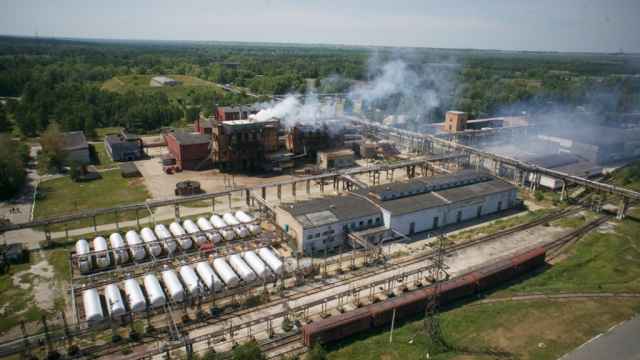President Vladimir Putin on Thursday called on security service officers to shield Russians from an array of threats, including extremist groups, foreign-funded organizations and cyberattacks.
"Any direct or indirect interference in our internal affairs, any form of pressure on Russia, our allies and partners is unacceptable," Putin told senior Federal Security Service officers at a meeting, according to a transcript on the Kremlin website.
In recent months, Putin has intensified a push to eliminate foreign influence and promote patriotism in Russia. He has been a vocal proponent of a ban on U.S. adoptions of Russian children passed last year, and earlier this week he submitted a bill to parliament that would prohibit government officials from holding bank accounts abroad.
Speaking at Thursday's meeting, attended by FSB chief Alexander Bortnikov, Putin warned of the dangers of unbridled free speech, saying that "no one has the right to sow hatred, stir up society and thus threaten the lives, well-being and peace of millions of our citizens."
"Neither does anyone have a monopoly on speaking in the name of Russian society, especially structures financed from abroad and serving foreign interests," he said.
Putin has said before that he believes that certain nongovernmental organizations take orders from foreign states to promote instability in the country.
Last year, the State Duma passed a law as part of an effort to stymie the perceived threat. The law obliges NGOs engaged in "political activities" to register as "foreign agents."
The president was addressing the FSB the same day a suicide bomber killed four police officers by detonating a bomb at a police checkpoint outside the city of Khasavyurt in the volatile Dagestan republic.
Putin, who served as a security service officer for more than a decade and headed the FSB from 1998 to 1999, said that Thursday's blast served as a warning that the country's anti-terrorism forces must be constantly vigilant and that intercepting terrorist attacks should remain the FSB's foremost priority.
The president also renewed calls for a system to detect, prevent and counter cyberattacks.
"It is a matter of importance that you carry out this task as effectively as possible in the shortest time frame," he said.
The FSB's National Anti-Terrorism Committee coordinated 60 special operations in 2012 and prevented six terror attacks, according to statistics cited by Putin. Over the same period, the FSB stopped 181 foreign intelligence officers.
Putin said FSB employees' salaries were increased on Jan. 1 by an average of 40 percent.
Contact the author at [email protected]
Related articles:
A Message from The Moscow Times:
Dear readers,
We are facing unprecedented challenges. Russia's Prosecutor General's Office has designated The Moscow Times as an "undesirable" organization, criminalizing our work and putting our staff at risk of prosecution. This follows our earlier unjust labeling as a "foreign agent."
These actions are direct attempts to silence independent journalism in Russia. The authorities claim our work "discredits the decisions of the Russian leadership." We see things differently: we strive to provide accurate, unbiased reporting on Russia.
We, the journalists of The Moscow Times, refuse to be silenced. But to continue our work, we need your help.
Your support, no matter how small, makes a world of difference. If you can, please support us monthly starting from just $2. It's quick to set up, and every contribution makes a significant impact.
By supporting The Moscow Times, you're defending open, independent journalism in the face of repression. Thank you for standing with us.
Remind me later.






